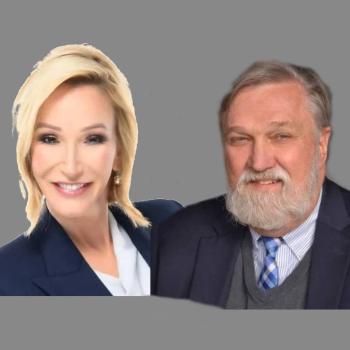We live in a world of extremes. Oftentimes, when people feel religiously threatened or afraid, they tend to take comfort in dogma because it provides security. This is not just true of those who lean more conservative, but it also affects liberals as well. And when people become comfortable with their dogma, it can turn into fundamentalism. In contrast to what most people think, fundamentalism is not just a trap that conservatives can fall into, but liberals as well. Intolerance makes no distinctions.
There have always been divisions between liberals and conservatives as long as there have been viewpoints. What most often defines both is how each views the role of orthodoxy within their given philosophy or religion. In general, conservatives hold to an unchanging orthodoxy. They try to protect orthodoxy from the infiltration of external influences that may threaten to overturn sacred traditions. In Judeo-Christian religions, more specifically, God is viewed as unchanging, and therefore, so should the worldview associated with it.
On the other side, liberals believe that orthodoxy should evolve as culture does. The assumption is that as we move forward in time, we progress in our understanding of the world around us. Moreover, as our perception of truth evolves, so should fundamental ideas within belief systems.
Perhaps the best example of this tension was during the Copernican revolution. This revolution was built upon the idea that Earth was not at the center of the cosmos, which was something the Church touted for generations. This shift in thinking not only questioned the theological implications of humanity’s perceived centrality in creation but also provoked a strong reaction from ecclesiastical authorities, who interpreted the new theory as a direct threat to their doctrine (and by extension their power). Consequently, the Church adopted a more fundamentalist approach, leading to the persecution of individuals who supported or tried to spread Copernican ideas, instead of supporting established orthodoxy.
The Politics of Belief
It has always struck me as incongruent that religious leaders often make one choose between either taking the Bible seriously or social justice, but not both. Especially since the ministry of Jesus, as well as the prophets, was primarily social. But why the either/or?
Back in my seminary days, we were required to read one of Brian McLaren’s books (the title escapes me). This was surprising, given that I attended a conservative seminary. When we began discussing the book, it was clear the professor was using Brian as a foil to an argument he was making. Being the ever inquisitive one, I asked the question: “I don’t understand, it seems like what he is saying is that we should take care of the poor and be more socially aware.” In response, the professor stated that it “only sounds like he is being socially aware, however, he is doing it from his democratic worldview”.
It was unclear to me why his politics had anything to do with his ministry to the poor, but it was insightful into how some conservatives view their faith. In the Kingdom of Man, I argue that what we are seeing is a fusion taking place within the evangelical worldview. This fusion is essentially between their views on faith, society, and culture. This fusion essentially makes it impossible for them to differentiate the various spheres within their worldview, and ultimately becomes a single aspect from which the world is evaluated.
Either the Bible OR Social Justice! Why Not Both?
It can and has been argued that evangelicals sometimes hold to a belief that elevates the Bible above its precepts. On the other hand, it could be argued that liberals hold to a belief that is built upon a weak foundation through their low view of the Bible. We can neither ignore the clear commands that Jesus gives the world nor the means through which he communicated those commands.
If you are familiar with my writing, you are aware that I have spent a considerable amount of time criticizing the conservative evangelical view of the Bible (see here and here for a couple of examples). Those criticisms often get misunderstood as me being critical of the Bible itself. This is often by those with fused worldviews who are unable to think beyond binary categories. But I believe that we can take social justice seriously and also grant authority to that which provides us with those ethics.
Conservative evangelical theology can sometimes leave a funny taste in your mouth. We may not be able to put words to it, but it ultimately comes down to the irrationality of binary thinking that is prevalent in evangelical theology. This is the idea that something is either true or false. This lack of acknowledgement of the gray is where the irrationality comes in. It’s a quite simple and logical argument:
- God is absolute truth.
- God communicated to humanity.
- Therefore, what he communicated must also be absolute truth.
This seems reasonable, but only if certain details are ignored. Anyone claiming to be a Christian should grant the first premise (even though we may define it differently). I think most Christians would grant the second premise true as well, with the same caveat. However, it is in the conclusion where it gets fuzzy. It’s in the word “communicated” (we might also use the term revealed). For the evangelical that communication is wrapped up in the Bible (to be fair, they would also argue that God reveals himself through creation as well.) But for the most part, the Bible houses that communication.
There are two assumptions that these theologians make in this claim. That the Bible indeed houses that communication and that fallible humans have the ability to make sense of that communication as it was intended. These two glaringly problematic assumptions are what causes a significant amount of consternation between liberals and conservatives.
But it seems to me that with a little humility, we can have a more rational view of the Bible and its precepts. If I were to write a mini confession about the Bible, it would look like this:
- The Bible has authority over the Christian faith and its precepts. It does not have authority over those who are not Christians.
- There should be a simple orthodoxy that unites those precepts. Our extrapolations on those precepts should not themselves become precepts.
- Although the Bible does give clear ethical mandates, those mandates take place within a larger context and must be understood that way.
- The Bible should not be viewed as an ethical treatise or a metaphysical dictionary on truth. Such views lead to propositionalizing.
- The Bible is both unified and diversified. That is, despite its diversification, its larger narrative seems unified in the story it is telling.
- Our orthodoxy should be the story it is telling.
I would probably choose to reword this 10 years from now. However, to me, it seems that something akin to this view grants the Bible the authority it deserves without ignoring the direct and indirect commands contained therein. With that said, it is clear that the work of Jesus and the example he put forth was social in nature. In fact, that was the great sin of Israel. The sin the prophets proclaimed and Jesus reiterated in his ministry.
You can view my UNenlightenment YouTube Channel HERE
You can view my UNenlightenment Podcast HERE
You can follow me on FaceBook HERE
Transform your life today by getting my book UNenlightenment HERE
Purchase my newest book The Kingdom of Man HERE















